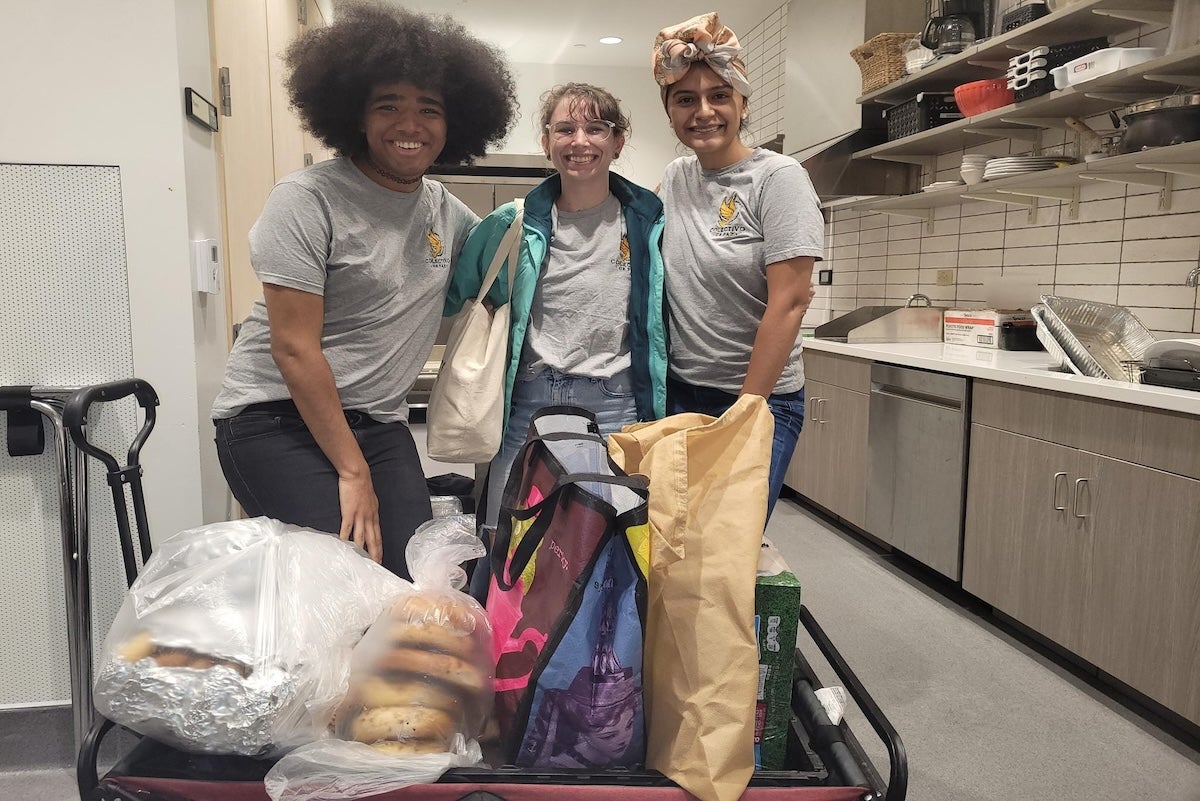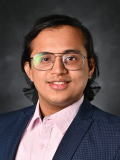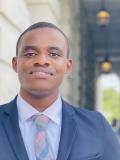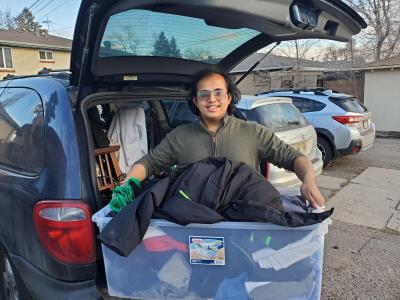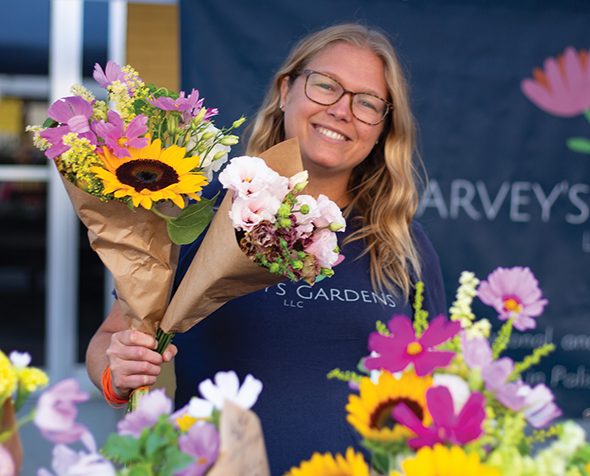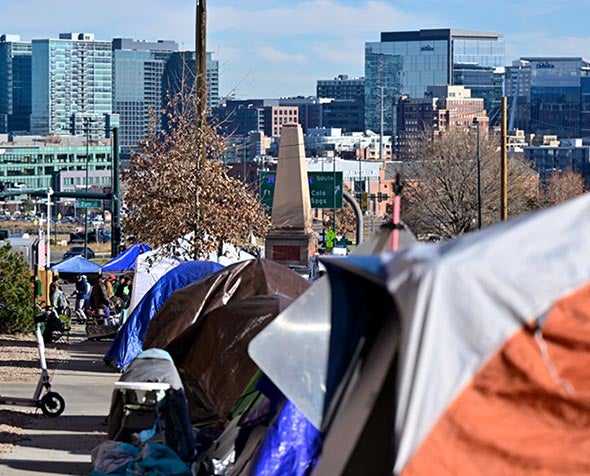Colectivo de Paz Listens to, Lifts up Marginalized Communities in Denver
It all started in DU’s Pioneer Leadership Program.
Hridith Sudev (BS, BA ’22), a biological sciences and public policy double major, and some fellow students wanted to create a resource hub for immigrants and refugees for their second-year community engagement project. Then the COVID-19 pandemic hit, and the plan stalled.
But the idea kept nagging at Sudev, so two years later, he reached out to like-minded friends Methusella Rwabose (BA ’23), Julian Temianka (BA ‘22) and Clare Nicholson (BA ‘22)—and Colectivo de Paz was born. Sudev, who is from Oman and now studying medicine at the University of Colorado Anschutz Medical Campus, and Methusella, who was born in the Democratic Republic of Congo and came to Denver as a refugee in 2015, say the mission of Colectivo de Paz—to create communities of action that empower immigrants, refugees and other marginalized people, including the unhoused and at-risk youth—comes directly from their own experiences.
Sudev was born in India, but his family relocated to Oman as “guest workers” when he was young. They lived just a few miles north of Yemen, which was at war with Saudi Arabia. His parents, a physician and teacher, were community activists, and Sudev followed in their footsteps, becoming involved in environmental causes at age 13.
Methusella, whose father worked in politics, spent seven years in a Ugandan refugee camp as a child and had no formal schooling until he came to Denver and enrolled at South High School. He didn’t know any English, but he was so thrilled to be in school that he learned quickly and became active in student government, soccer and volunteer work.
Both Sudev and Methusella came to DU on scholarship and say that, while they had a lot of support when they arrived in the U.S., many do not. Services and resources to help with basic needs and navigating life in Denver are available, but access is difficult because they are dispersed across agencies and not always tailored to specific needs—and those who need them are often too busy surviving day to day to seek them out.
That’s where Colectivo comes in. Sudev and Methusella call it a “responsive organization” because they design their programs based solely on what vulnerable community members say they need most.
For one of their first projects, they reached out to Corey Ciocchetti of the Daniels Fund Ethics Initiative at the Daniels School of Business, where Sudev and Temianka had been ethics fellows, and worked with students and local businesses to deliver 100 nonperishable food kits to the unhoused in Denver. In the process, they got feedback on what was really needed—nutritious hot meals, warm clothes and medicine—and tailored their program accordingly.
To date, Colectivo has delivered more than 6,000 hot meals to the unhoused, which they prepare every Sunday in DU’s Community Commons kitchen, and more than 2,000 direct aid kits to refugees and immigrants. They lead workshops for community members and high school students on topics such as how to write a resume, cook healthy meals on a budget and become a community organizer. They also connect community members with other organizations that offer services ranging from tutoring and networking events to job training and legal clinics. They are working on innovative long-term projects, like an international business district on Colfax Avenue and a medical clinic that provides crucial wraparound services like follow-up care and counseling.
The end goal, says Sudev, is to create self-sustaining communities in which members are empowered to not only access but also create the resources and services they need.
“We call it Colectivo de Paz—‘Peace Collective’—for a reason,” says Methusella. “I was born in the middle of a war, and when I came to the U.S., that was the first time I felt a sense of peacefulness, knowing I can live my life the way I want. We want to help other people who are struggling to feel that.”
Sudev adds, “At the end of the day, what most people need is a smile when they think about their day and some hope when they think about tomorrow. If you can give them those two things, if Colectivo can keep doing that, that’s all we can ask for.”
Learn more about Colectivo de Paz.








